|
Rating |
Image |
Products |
Score |
Price |
|---|---|---|---|---|
|
1 Best |
 |
All-in-1 Box General Organics Go Box by General Hydroponics Editor’s Choice |
CHECK PRICES | |
|
2 |
 |
95/100 | CHECK PRICES | |
|
3 |
 |
Hydroponic Multi-nutrients for Bloom, Micro & Grow by Advanced Nutrients |
93/100 | CHECK PRICES |
|
4 |
 |
All-in-1 Flora Series Performance Pack by General Hydroponics |
92/100 | CHECK PRICES |
|
5 |
90/100 | CHECK PRICES |
Growing plants hydroponically is considered an economical way of sustaining food. Hydroponic gardens save much time, effort, water, and especially money. However, if hydroponic plants do not produce a bountiful harvest, then the time, effort, water, and money that you have spent in setting up your hydroponic garden will be put to waste. For this, hydroponic gardeners need to have the best hydro nutrients to grow their plants healthily and successfully, ensuring the gardeners the biggest harvest possible.
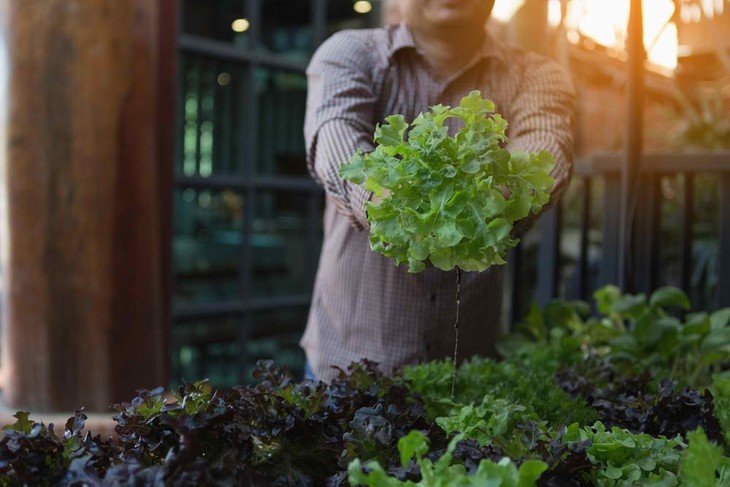
The quality of the hydroponic plants depends on the hydroponic nutrients given
Hydroponic plant nutrients come in different types. Some are organic hydro nutrients while others are a hydroponic nutrient mix. Nutrients for weeds are different from those for vegetables. Therefore, hydroponic gardeners should be aware of the differences, as well as the benefits of the different nutrients that are needed for the hydroponic plants to grow.
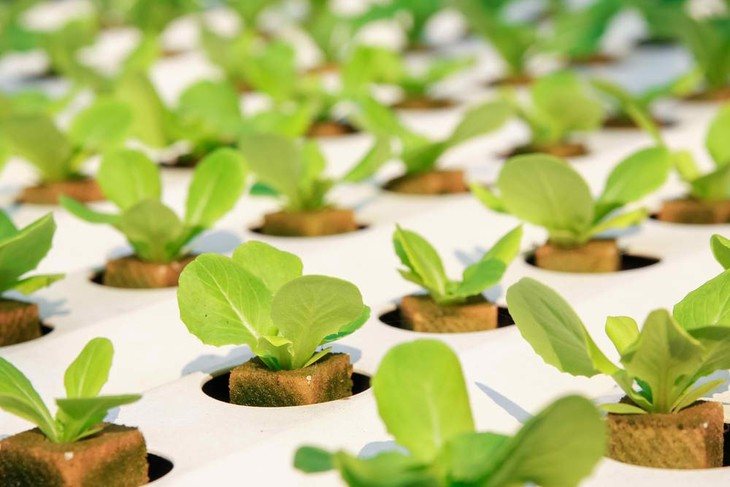
Tasting hydro nutrients are used in making your plants tasty when they’re harvested
Necessary Hydro Nutrients That Hydroponic Plants Need
Basically, there are two types of nutrients. These are the macronutrients and the micronutrients. It is necessary to understand the difference of the two so that we can identify the hydroponic nutrients that are appropriate for our hydroponic plants.
Macro Nutrients
Macronutrients are nutrients that are absorbed by the plants in large amounts. These include potassium, phosphorus, and nitrogen. These three nutrients play a vital role in the development and growth of hydroponic plants. Most plant nutrients are indicated with three letters in front of their label – NPK. This stands for nitrogen (N), phosphorus (P), and potassium (K). The higher the number indicated in the NPK digits, the more concentrated the nutrients are in the hydroponic fertilizer.
Potassium (K)
Plants need to synthesize carbohydrates to transform them into sugar. This is essential for the plants to store up the energy needed for the development of flowers and fruits. With this, potassium (K), which is also called as a bloom booster, is highly needed for hydroponic plants to keep high-quality fruits and flowers. This nutrient should be given to plants on the early onset of the flowering stage. This will provide the plants enough energy for the production of more flowers, and eventually fruits.
However, there are also cases in which potassium is also highly needed during heavy flowering and fruiting. Fruits that do not get enough potassium tend to be watery and taste bland. This usually happens to tomatoes, strawberries, and other fruits that can be grown hydroponically.
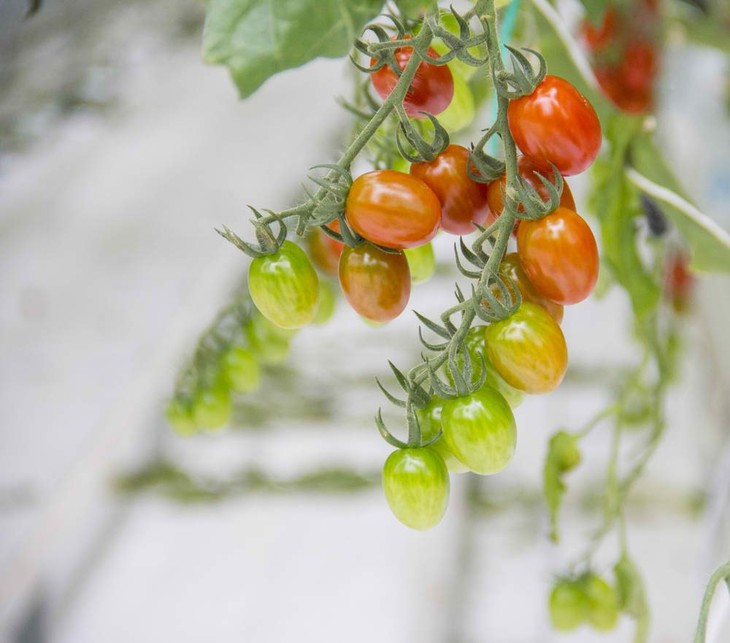
The more potassium given to the fruits, the sweeter they become
Phosphorus (P)
Phosphorus (P) is the nutrient in-charged with the synthesis of the DNA and RNA of plants. It is responsible for the development of various parts of the plants such as the seeds, flowers, roots, and stems. This nutrient helps the potassium in developing the fruits and fruits of hydroponic plants successfully.
If plants do not get enough amount of phosphorous, their stems become weak, the growth of leaves slow down, and seeds become underdeveloped or malformed.
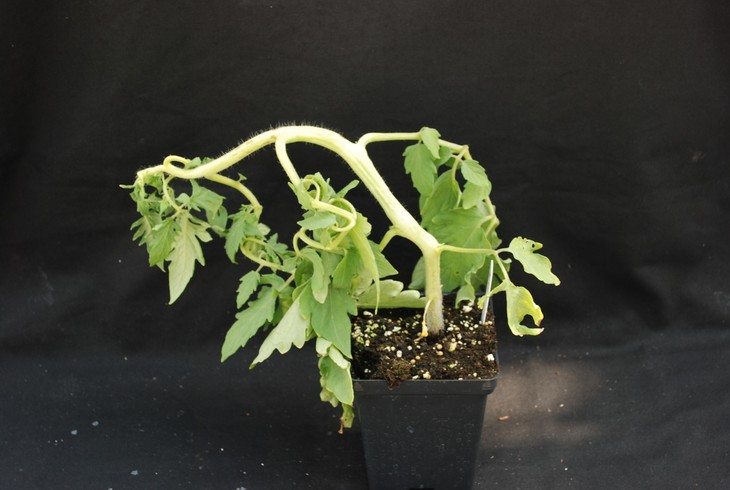
Plants that are suffering from phosphorus-deficiency have weak stems. Source: ag.tennessee.edu
Nitrogen (N)
Nitrogen (N) is the nutrient responsible for the plant’s production of healthy leaves. This nutrient makes the leaves have a vibrant green color, which is also very important in the process of chlorophyll synthesis.
One can easily tell if the plants get enough nitrogen or not. Notice if the plants do have vibrant green leaves; this is an indication that they have consumed enough nitrogen. In cases where leaves become yellowish, this is an indication that your plants need more nitrogen.
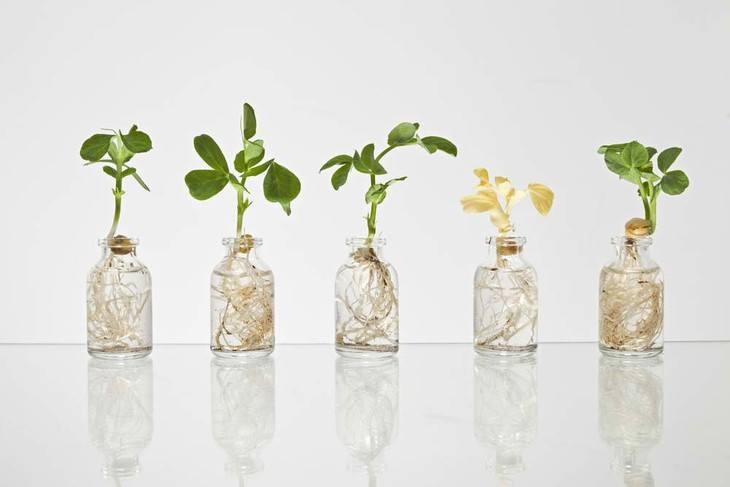
Plants that have vibrant green leaves have taken enough nitrogen
Micro Nutrients
Plants do not need only the three macronutrients. They also need other nutrients that are given only in small amounts. These nutrients are called micronutrients. These include calcium, copper, iron, magnesium, boron, zinc, and sulfur. These nutrients have different functions in the development and growth of the plants.
- Calcium helps boron in forming the cell walls of the plant.
- Copper keeps the plant’s enzymes active, which is also helpful in the plant’s photosynthesis, as well as in respiration.
- Iron is responsible for the formation of chlorophyll and sugar.
- Magnesium helps the plants in regulates the production of oxygen during photosynthesis.
- Boron helps calcium in forming plant’s cell walls.
- Zinc helps the plants in forming chlorophyll, and also in the respiration and nitrogen uptake of the plants.
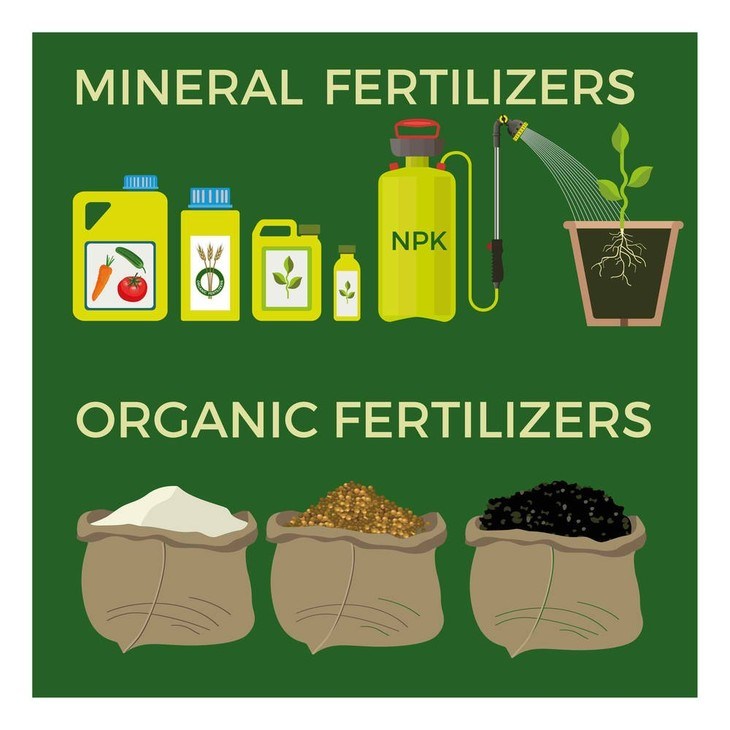
Organic fertilizers usually come in powder forms
Different Types Of Hydroponic Nutrients
Searching for the best hydro nutrients can be a challenging task for beginners when setting up hydroponic systems. Nutrients for hydroponic plants should be water-soluble. Animal wastes and compost fertilizers cannot be applied directly to deep water culture since plants cannot absorb them efficiently. So what are the appropriate nutrients for hydroponic plants? These could either be a powdered nutrient or a liquid one.
Powdered Nutrients
Powdered nutrients need to be dissolved completely in the water before applying it to the hydroponic garden. There are some kinds of this nutrient wherein the powder won’t fully dissolve into the water. Most commonly, powdered varieties of hydroponic nutrients don’t have pH buffers, which are useful in regulating the nutrient solution’s pH level though some are also considered to be organic nutrients. This type of hydro nutrient is ideal for hydroponic systems that utilize air pumps so that the powder nutrients that are not fully dissolved can be mixed through the circulation of water inside the hydroponic tanks.
Liquid Nutrients
The liquid variety of hydro nutrients is more commonly used as compared to the powdered variety. This type of nutrient is highly concentrated. Therefore, it should be thoroughly mixed into the water before applying it to the hydroponic reservoir. Furthermore, liquid nutrients usually come with pH buffers that automatically regulate the pH level of the nutrient solution.
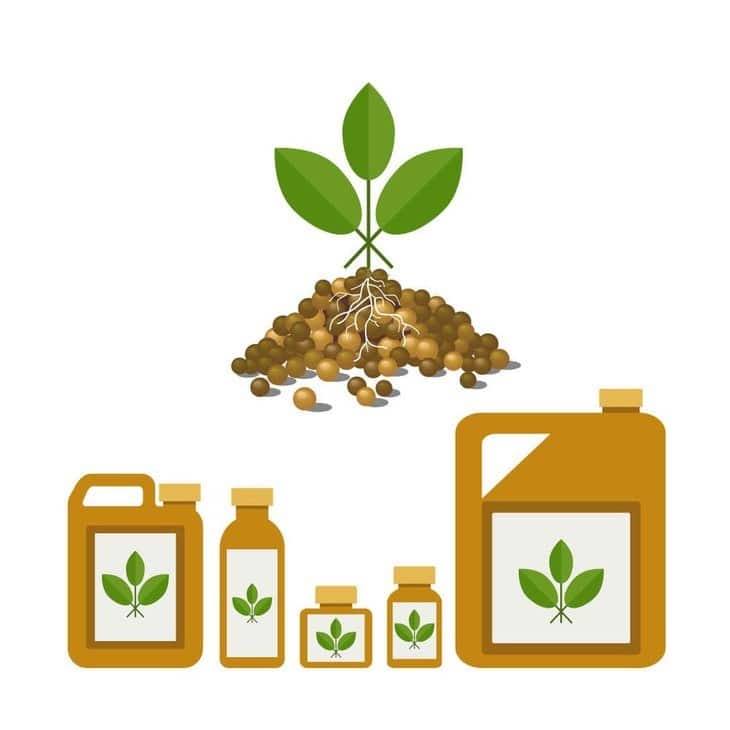
Liquid fertilizers are easy to use as compared to powdered ones
Top 5 Best Hydro Nutrients Reviews
With all the information presented about the necessary nutrients needed by hydroponic plants, it is essential to use the best hydro nutrients that are available in the market so as to yield the maximum harvest possible. So, here are the reviews for the five best hydro nutrients this 2018.
#1 All-in-1 Box General Organics Go Box by General Hydroponics

All-in-1 Box General Organics Go Box by General Hydroponics. Via: Amazon.com
This hydroponic nutrient is manufactured by General Hydroponics. This product features premium plant foods and supplements all in one box. This includes 16 ounces of two fertilizers and 8 ounces sample of all the GO liquid supplements. This has a total weight of 7.3 pounds with a box dimension of 9.2 x 6 x 7.4 inches.
Pros
- This product includes all the plant nutrients and supplements that are necessary for any hydroponic plants.
- This comes with 16 ounces of BioThrive Grow and Bloom fertilizers.
- It also includes a sample pack of each GO liquid supplement in eight ounces each – CaMg+, BioRoot, BioWeed, BioBud, BioMarine, and Diamond Black.
- This product does not contain any chemicals and chelated acids.
- This is ideal for DWC hydroponic systems.
Cons
- The bottles used in this product are not of high-quality and can be easily damaged.
- This hydro nutrient has the tendency to increase the solution’s pH level every now and then.
#2 Bacillus Root Inoculant Hydroguard by Botanicare

Bacillus Root Inoculant Hydroguard by Botanicare. Via: Amazon.com
This product is the best hydro nutrient manufactured by Botanicare. This product features 7 options with regards to its quantity – 8 ounces, 1 gallon, 1 gallon in 4 packs, 2.5 gallons, 2.5 gallons in 2 packs, 1 quart, and 1 quart in 12 packs. This nutrient does not produce any slimy substances that make the roots stick with every root line and may eventually kill your hydroponic plants. This item comes in a white plastic container.
Pros
- This product contains an isolated form of bacillus bacteria called Bacillus Amyloliquefaciens, which is known to boost plant’s root mass and growth.
- It is highly concentrated making the nutrient powerful and very effective.
- This features a plain odor, unlike any other hydroponic nutrients.
- This does not create slimy and sticky substances, which may cause the rotting of the roots and may eventually kill the hydroponic plants.
- This nutrient is capable of creating enzymes that are beneficial for the plant’s growth and development.
- This is good for two years after the date indicated on the bottle.
Cons
- This product should be used within six months after opening it, or else, the bacillus bacteria will die, making the product ineffective already.
#3 Hydroponic Multi-nutrients for Bloom, Micro & Grow by Advanced Nutrients

Hydroponic Multi-nutrients for Bloom, Micro & Grow by Advanced Nutrients. Via: Amazon.com
This product is manufactured by the Advanced Nutrients. This features three different hydro nutrients that come in a minimum of 1 liter each and a maximum of 23 liters each. This also offers other options with regards to the amount of the nutrient – 4 liters each, 10 liters each, and 500 mL each. This comes in a white plastic container with a black label.
Pros
- This product features three-part nutrients designed for plants to grow healthily and successfully.
- This includes advanced nutrient bloom, micro, and grow.
- It is designed with carrier molecules that are responsible for delivering the nutrients to the plants efficiently and effectively.
- It also comes with pH buffers that automatically fix the pH level of the nutrient solution in the hydroponic tanks.
Cons
- Some buyers had complained about the incompetent labels and instructions included in the package.
- It does balance the pH level of the nutrient solution but only for one day.
#4 All-in-1 Flora Series Performance Pack by General Hydroponics

General Hydroponics Flora Series Performance Pack. Via: Amazon.com
This product is another hydro nutrient manufactured by General Hydroponics. This is designed for both hydroponics and soil gardening. The product package includes several nutrients and a pH test indicator. It has a total weight of 6.3 pounds with a box dimension of 7.5 x 7 x 5.2 inches.
Pros
- This plant nutrient can be applied to hydroponics and soil gardening.
- This includes assorted Flora nutrients plus a pH test indicator to help the user monitor the nutrient solution’s pH level.
- This is ideal for tomatoes and other fruits and vegetables.
- This is also ideal for lettuce and other leafy vegetables.
- This product provides nitrogen, potassium. calcium, and other trace elements.
Cons
- This product’s contents do not match the labeled amounts in the bottles.
- Some buyers said that the product package that they have received does not include any manual.
- The bottles used in the packaging are not of high-quality and produce some leaks.
#5 FloraKleen Clearing Solution by General Hydroponics

FloraKleen Clearing Solution by General Hydroponics. Via: Amazon.com
This product is another hydro nutrient manufactured by General Hydroponics. This item offers five different options regarding the amount of the liquid nutrient – 1 gallon, ¼ gallon, 2.5 gallons, 6 gallons, and 15 gallons. Aside from providing proper nutrients for the plants, this product is also designed to dissolve accumulated fertilizer salts. This comes in a white plastic container with a light blue label.
Pros
- This product is capable of reducing plant stress from imbalanced nutrients.
- This is ideal for plants that are almost fully grown. This should be applied few days before harvest so that the plants can maximize the production of sugar, which is useful in the plant’s maturation.
- This is ideal for all types of hydroponic systems.
- This can also be applied to plants grown in soil gardening.
- This is affordable as compared to other similar products.
Cons
- This product does not completely dissolve all fertilizer salts and other residues caused from spraying pesticides.
Conclusion
All gardeners are always aiming to have a bountiful harvest from the plants that they have cultivated. To successfully achieve this, one should apply the best hydro nutrients that are available in the market. Aside from this, proper care should also be given to plants so that they will grow to the desired quality that we are aiming. This includes constant monitoring of the pH level of the nutrient solution, as well as the application of appropriate type and amount of plant nutrients and supplements. One should also take into consideration the usage of the best tools that are used for growing plants hydroponically.
Among the five best hydro nutrients reviewed above, the best one for me is the Hydroguard Bacillus Root Inoculant manufactured by Botanicare. This product is composed of Bacillus Amyloliquefaciens, which is known to promote good development and growth of the plants.
What about you? Which one is your best hydro nutrient? Thank you so much for dropping by to read this article, and please do share this with other gardeners who are aiming to make their plants grow healthily and successfully.
You may also read:
Pin it!
